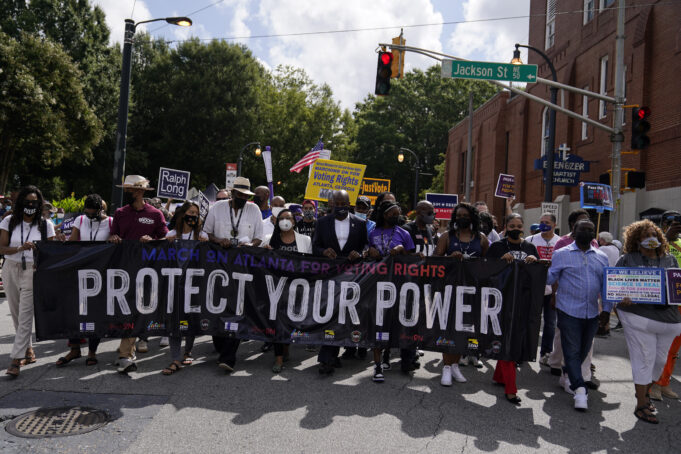Sixty years ago, on August 28, 1963, approximately 250,000 people convened in front of the Lincoln Memorial in Washington, D.C., for the March on Washington for Jobs and Freedom. After six decades of that historic gathering, experts say progress toward economic, political and social equality has stagnated, particularly for Black people and marginalized communities.
A new report titled, “Still A Dream: Over 500 Years to Black Economic Equality,” found that “60 years after the famed March on Washington for Jobs and Freedom, where Dr. Martin Luther King, Jr., gave his landmark ‘I Have a Dream’ speech, African Americans are on a path where it will take 500 more years to reach economic equality.”.
The report was co-authored by Dedrick Asante-Muhammad, Chuck Collins, Omar Ocampo and Sally Sim and published via the National Community Reinvestment Coalition and the Institute for Policy Studies.
The report does list a few socioeconomic advancements since the 1960s. The Black poverty rate declined from 51 percent to 20 percent, Black high school attainment increased from 24.8 percent in 1962 to 90.1 percent in 2022 and since 2018, Black unemployment has reached record lows of five percent and six percent, except during the 18-month recession caused by Covid-19, according to the report.
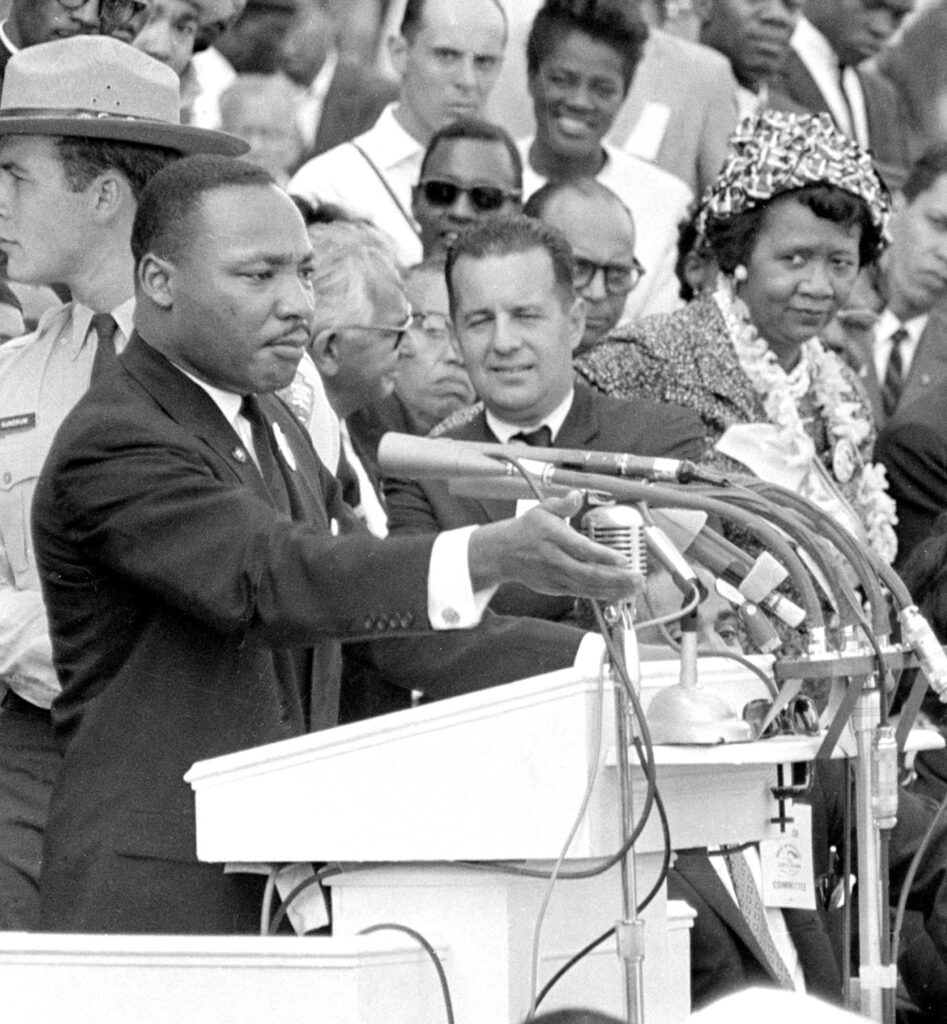
Still, the report says that for every dollar of White family income, Black people had 58 cents in 1967. In 2021, Black people had 62 cents to the White household’s dollar.
“In that 60 years, African Americans increased by four cents, on getting to that full White dollar. And if we take that 60 years for four cents and we project that forward, it would take 500 years for African Americans to bridge that 38-cent gap to get us to a full dollar of Black income equaling the White income,” Mr. Asante-Muhammad, chief of organizing, policy and equity at the National Community Reinvestment Coalition, said to The Final Call.
The median household income for Black people grew 0.36 percent since the turn of the century and is lower today than the White median family income in 1963, the report continues. Between 1962 and 2019, Black wealth only increased six cents for every dollar of wealth of non-Black Americans.
“At this rate it would take 780 years for Black wealth to equal non-Black wealth,” the report says.
Between 1960 and 2021, Black homeownership increased by six percent, while White homeownership increased by 10 percent.
Another recent report, published by the Economic Policy Institute, concurs that “little progress has been made in removing barriers to the full equitable integration of Black Americans into the U.S. economy.” It found that “post–civil rights era legislation has largely failed to address widening racial disparities in wages, wealth, and homeownership for Black Americans.”
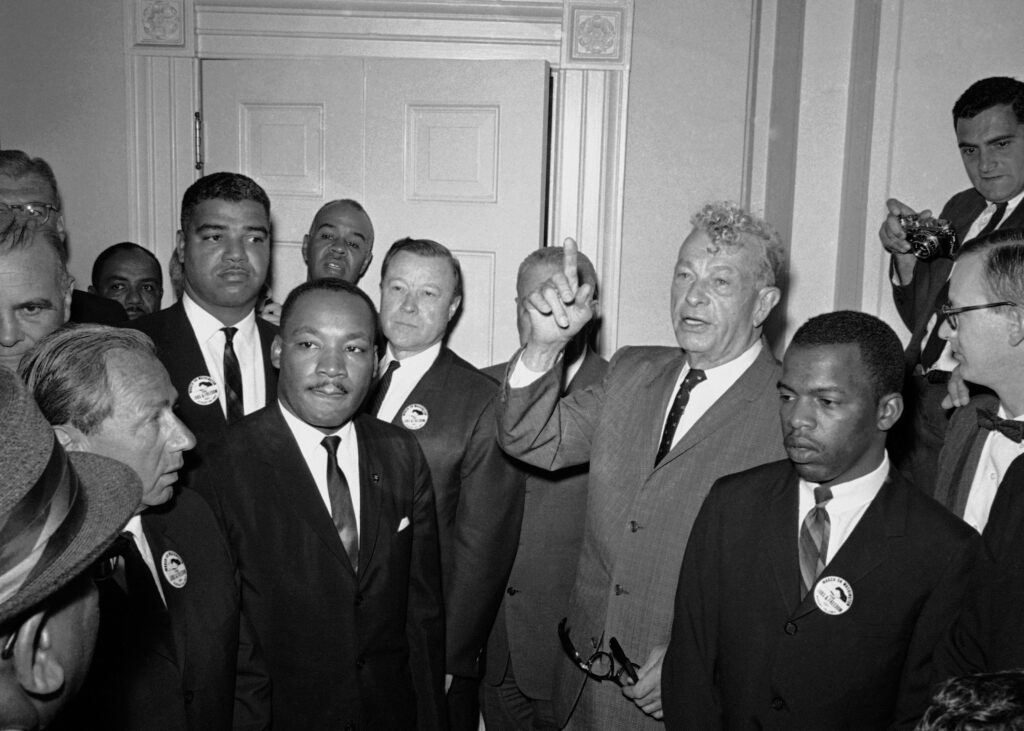
Sixty years ago, Dr. Martin Luther King Jr. started his famous “I Have a Dream” speech with the lack of progress made in 100 years, from 1863 with the Emancipation Proclamation to 1963.
“But 100 years later, the Negro still is not free. One hundred years later, the life of the Negro is still sadly crippled by the manacles of segregation and the chains of discrimination. One hundred years later, the Negro lives on a lonely island of poverty in the midst of a vast ocean of material prosperity. One hundred years later the Negro is still languished in the corners of American society and finds himself in exile in his own land. And so we’ve come here today to dramatize a shameful condition,” he said.
Fast forward to 2023, 160 years after the Emancipation Proclamation, “and we still see that African Americans are on an island of asset poverty, wealth poverty, in an ocean of wealth and material prosperity,” Mr. Asante-Muhammad said. “I think he (Dr. King) was clear that it was a call to action that we need to change how the country was moving forward at that time period. And I think the problem is, we still haven’t made that change.”
He believes sayings such as “we’ve made progress” but “we’re just not quite where we want to be” should be unacceptable. For him, the March on Washington was not a victory, but was, instead, Dr. King saying, “We’re too slow.”
“We’re not making progress in any way that should be supported in our society. Five hundred more years for Blacks to get equal income to Whites, no one would consider that positive progress,” he pointed out. “This is 2023. We shouldn’t be thinking we have to wait until 2523 until African Americans have just equal income. So, I think we need to know that the country has been failing for the last 60 years to make substantial progress, which means we need to do things we haven’t done before and engage in a way that we haven’t.”
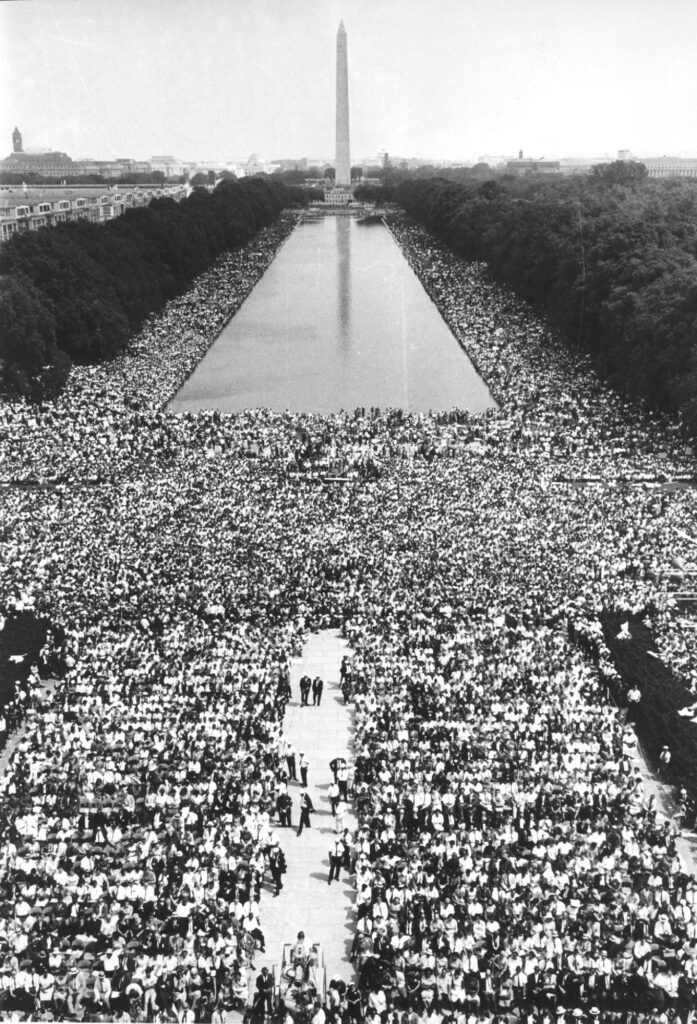
The National Action Network (NAN) with founder and president Rev. Al Sharpton and the Drum Major Institute with board chairman Martin Luther King III, son of Dr. King, and his wife Arndrea Waters King, chairman and president of the institute, are holding a 60th anniversary March on Washington. The march, which will take place on Aug. 26, will be “carrying the same issues of discrimination and civil rights abuses” as the original march. The Final Call reached out to NAN and the institute and did not receive a response.
Some of the organizations supporting the 60th anniversary of the March on Washington, such as the Anti-Defamation League (ADL) and the Southern Poverty Law Center (SPLC), have proven, through their attacks on the Honorable Minister Louis Farrakhan, that they are actually anti-Black. Minister Farrakhan, the National Representative of the Most Honorable Elijah Muhammad, has worked tirelessly for the liberation of Black people in America for 68 years. In October 1995, he led the Million Man March, which was attended by nearly two million Black men.
“Unlike the Million Man March that was financed by us, for us, the 60th anniversary of the March on Washington is financed by them, for them in 2023 as it was in 1963,” Nation of Islam Southwest Regional Student Minister Dr. Abdul Haleem Muhammad said to The Final Call.
One of the major goals of the 1963 March on Washington was the advocacy for civil and economic rights for Black people.
“I would say looking at the goals of the (1963) March, we have not done well,” said Dr. Algernon Austin, the director for race and economic justice at the Center for Economic and Policy Research.
He explained the concerns that A. Philip Randolph, who first planned a march on Washington in 1941, and his chief aide Bayard Rustin, held towards economic justice demands; demands that have still not been met. Dr. Austin listed all the areas where “we have not made progress”: the Black unemployment rate; the federal minimum wage, which he described as lower than 1968 when adjusted for inflation; the lack of resources to fight discrimination in hiring and wealth inequality.
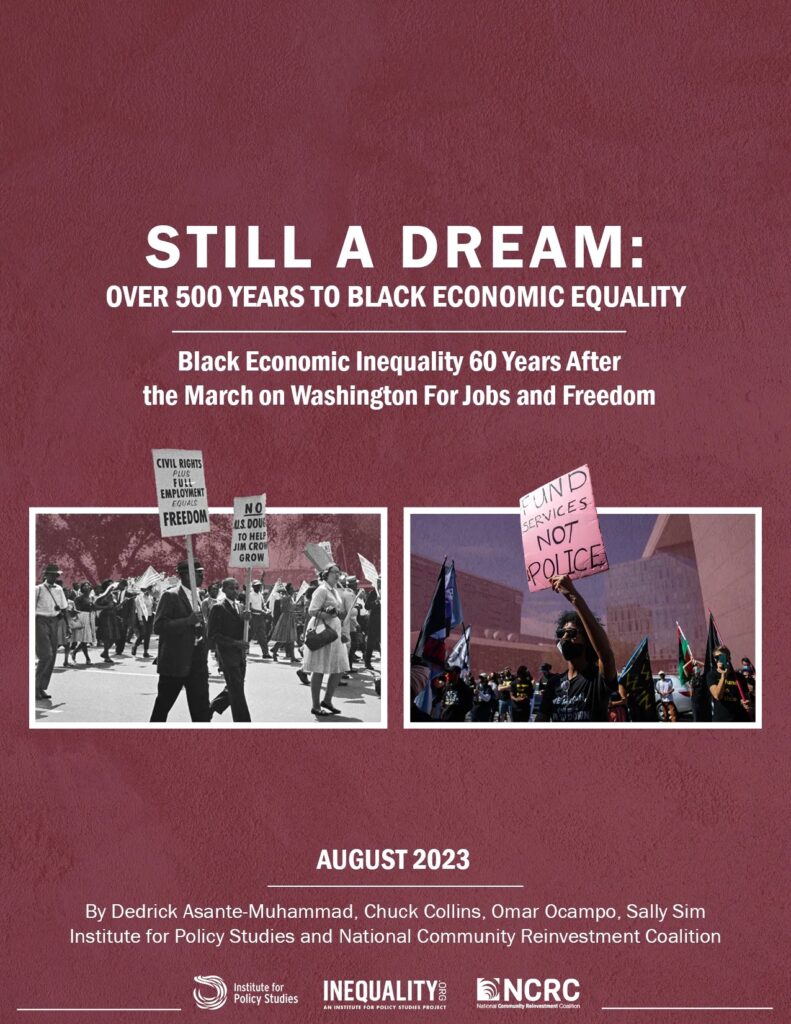
The only area he mentioned where progress has been made is in the diversity of occupations within the Black population today as opposed to 1963.
“When you look, overall, you can say that we’ve really not made very much progress on the economic demands front. We’ve largely stagnated,” he said. “There is a lot more work to be done, and I think the organizers of the march would be quite disappointed at how little progress we’ve made.”
He chalked the lack of progress down to the existing anti-Black racial discrimination, structural inequalities, and living in a capitalistic society.
“We’ve seen a greater divide between the wealthy and the rest of Americans. And the Black population is disproportionately in the category of ‘the rest of Americans.’ So as there’s growing class inequality in American society, that’s going to lead to more Black people who are going to be in the lower half of the distribution being left behind on economic measures,” he said.
He noted that before the death of Dr. King, the civil rights activist was working on the Poor People’s Campaign out of his concern about the country’s capitalistic economy “that creates this huge division between the haves and the have nots.”
“He argued for an economic bill of rights that would make sure everyone has a decent income so that we eliminate poverty. That was the poor people’s movement. And he advocated for full employment. One of the demands at the march was for a national program that would provide jobs for everyone who wanted to work,” Dr. Austin said.
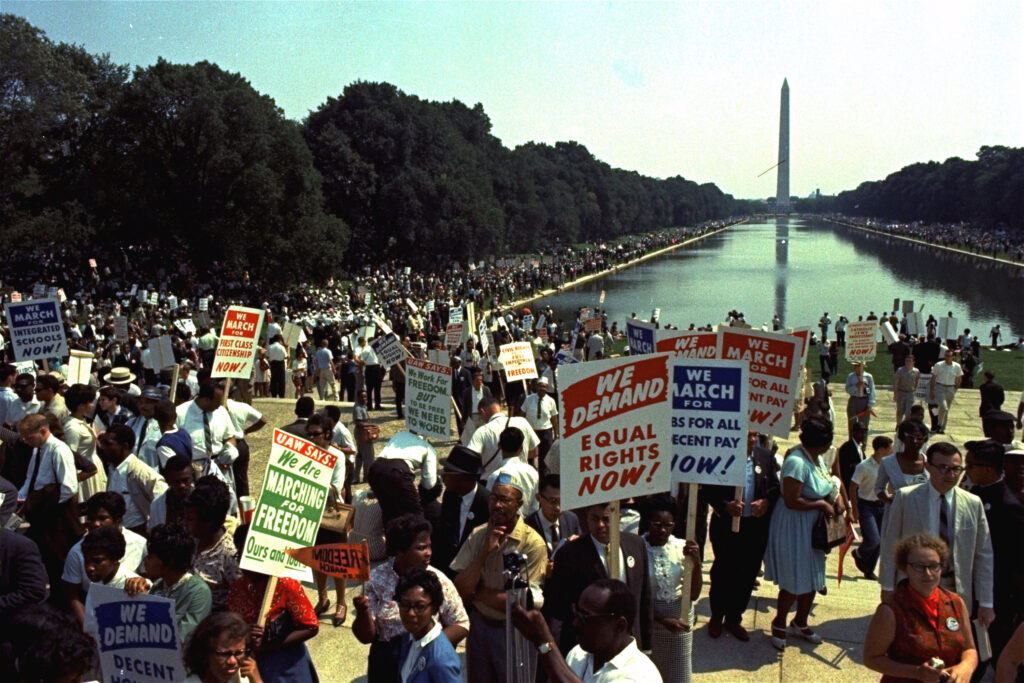
He criticized how easy it is today to “hide the overall Black disadvantage” because of seeing those like Oprah Winfrey and former president Barack Obama on the daily.
“But you don’t see the millions of poor children daily. They aren’t in our public media in a way comparable to these particular successful Black individuals, so that can lead to a very distorted picture of the overall state of the Black population,” he said.
Dr. Austin proposed counteracting economic policies that allow the wealthy to continue gaining wealth, because “this country has been making billionaires at a rate never seen before, while … there are also growing numbers of people who are homeless at the same time.”
The 1963 March on Washington called for a “freedom” that Black people have yet to see. In 2023, there is still rampant police brutality, more incidents of White vigilantes and anti-Black hate crimes, and ongoing issues within the prison system. In April, The Leadership Conference Education Fund, a national civil rights group, released a report titled, “Cause for Concern 2024: The State of Hate.”
The report warns that increased hate, particularly from White supremacists, will continue into the 2024 election and that hate crimes have nearly doubled since 2015. It also states that anti-Black violence remains the standard and that “Black Americans remain the most frequent victims of hate crimes.”
In the field of education, the teaching of Black history and race relations is being outlawed in schools across the country, and the number of banned books by Black authors is increasing. Meanwhile, in recent years, food justice advocates have labeled Black people victims of “food apartheid,” a system of food segregation that intentionally denies Black people access to healthy and nutritious food. From racism in healthcare to environmental racism, Black people suffer social inequalities across the board and have been historically locked out of the so-called freedoms that America boasts.
Thirty years after the 1963 March on Washington, the Honorable Minister Louis Farrakhan presented his book, “A Torchlight for America.” For Student Minister Dr. Abdul Haleem Muhammad, many of America’s ongoing problems are due to her ignoring the divine solutions presented by the Most Honorable Elijah Muhammad and Minister Farrakhan. In His book, “Message to the Blackman in America,” the Most Honorable Elijah Muhammad warned that the Civil Rights Act would not stand.
“The Civil Rights Act of 1964 is under attack. The Voting Rights Act of 1965 is under attack. The Fair Housing Act of 1968 is under attack. The affirmative action program … is under attack. Here we are in the 60th anniversary of the March on Washington marching for the same things we marched for in 1963: jobs and justice,” Student Minister Muhammad said.
He listed additional ongoing problems in today’s society: the assault on diversity, equity and inclusion programs; the assault on marriage and family life; the corruption of arts and culture; the over-policing of the Black community; the rampant health disparities; the lack of disaster preparedness and recovery; the infrastructure within Black communities and the frequent water crises.
“Black leadership must champion the strategy of turning within to do for self. Meaning, we must teach our people to use our talent, time and money, and pool our resources educationally and financially, to address our troubles,” he said, quoting from “A Torchlight for America.”
“Whatever America decides to do, our actions cannot be dependent on the actions of a benevolent, White, former slavemaster.”
As early as the 1930s, the Most Honorable Elijah Muhammad has been teaching Black people to separate from White America and to do for self. “If we want freedom, justice and equality, we must look for it among ourselves and our kind, not among the people who have destroyed and robbed us of even the knowledge of ourselves, themselves, our God and our religion,” He writes in “Message to the Blackman in America.”
“We have a world of Muslims under Allah and His religion, Islam. The White people do not teach you this because it points the way to your freedom and equality. It is a shame that our people are beaten and killed because of their ignorance in wanting to be White people, while there are billions of people on the face of this earth who look like them but only 400 million White people on our planet earth,” the Most Honorable Elijah Muhammad continues.
“Our population runs into billions, and the earth belongs to us. We are the original owners of the earth and will take it and rule it again. This is the time.”












